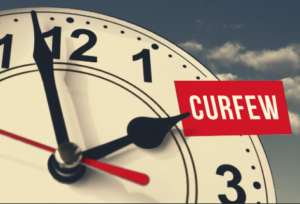
Sound advice from prime ministers Patterson and Golding
In this newspaper’s view, there can be no understating the power of example. Hence our appreciation of the decision by some of Jamaica’s leading elders — including two former prime ministers, Messrs P J Patterson and Bruce Golding — to show the way by being among the first on Wednesday to accept COVID-19 vaccination.
As Mr Patterson, now closing in on his 86th birthday, declared: “…I want to protect myself to the maximum extent, and the vaccine is the best-known form of doing that.” He also said that he, like others, wanted to demonstrate that “there is no reason whatsoever why people should not accept the vaccine when it becomes available”.
We endorse Mr Golding’s message that, “If we do not take the vaccine… we will not have herd immunity across the country, and we won’t be able to get back to normal.”
As Mr Golding pointed out, “propaganda” and “conspiracy nonsense” are negatively affecting some people’s response to vaccinations. Jamaicans must not allow themselves to be blindsided or distracted by what Mr Golding describes as “rubbish”.
The demoralising surge in COVID-19 cases in Jamaica and elsewhere, and the threat posed by rapid mutations, make it increasingly apparent that comprehensive vaccination programmes allied to preventive measures — including mask-wearing, social distancing and sanitising — are absolutely essential.
We accept that there will be those — a small minority — for whom a history of serious allergic reactions, etc, may make vaccinations unsuitable. However, the available evidence, and indeed the history of pandemics in modern times, suggest that vaccines will make the fundamental, game-changing difference in that desired return to a condition approaching normality.
Yesterday’s alarming new record of 12 deaths in Jamaica over the previous 24 hours underlines that there is no time to delay.
The onus now is on the Jamaican Government and its private sector partners to do all in their power to ensure a steady, adequate supply of vaccines — a task we concede is by no means easy — over the next several months to a year.
How well that job is done, and how quickly, will decide much about Jamaica’s immediate future.
Allied to that is the need to lift morale within the health sector.
In recent weeks there have been numerous reports of hospitals close to breaking point because of the COVID-19 patient load; the loss of staff members who may have fallen ill or simply forced to isolate because of the disease; and, of course, related high levels of fear and burnout.
We are told that the situation has been made worse by migration, as some front-line workers opt for countries with more rewarding pay structures.
As is well established, that problem predates COVID-19 by decades. It’s an issue Jamaicans will have to confront. There can be no escaping the reality that not just health workers, but all essential workers, need to be compensated at a level much closer to their true worth.






















